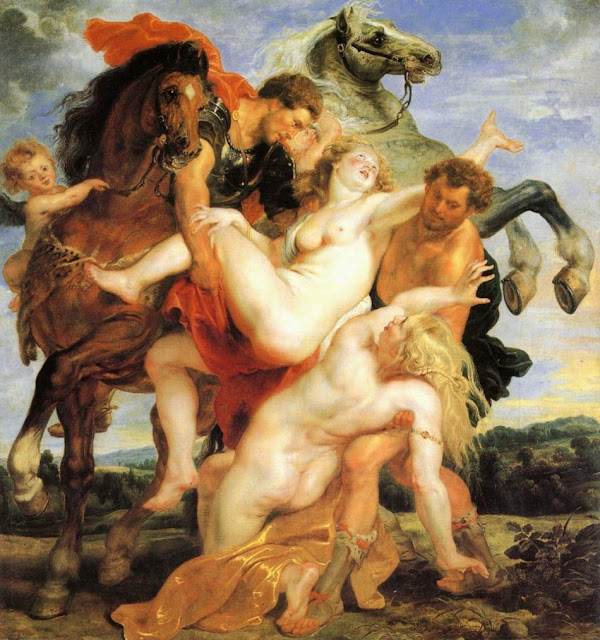MELAMPUS, a cousin of Bellerophon, won glory and fame and one third of a kingdom, all because he was kind to animals. Once when he was a child, he found a dead mother snake on the road. He did not kick it into a ditch, but gave it a proper funeral, picked up the little motherless snakes, and reared them tenderly. In gratitude they licked his ears so clean that he could understand the language of all animals, crawling and flying. From their talk he learned the secrets of the earth and grew wise beyond measure.
Once he was thrown into prison for trying to steal some cows from a neighboring king, and one night as he lay on his cot, he heard a family of termites talking inside the roof beam. "Brother," said one termite to another, "if we go on chewing all night, the roof will collapse before morning."
Melampus jumped up and hammered at the door. He demanded to be moved at once, for the roof would soon fall in. The jailer laughed, but Melampus made such a fuss that he was finally moved. Just then the roof did cave in. Everybody marveled, and the king called for him and told him that, if he could find a cure for his sick son, he could have the cows he had tried to steal. The young prince had been sick since he was a child, and no one knew what ailed him.
Melampus slaughtered an ox and spread the meat on the ground. Right away, two vultures swooped down and began to gorge themselves. When they had eaten their fill, one of the vultures said to the other, “I haven’t been so full since that time when the king sacrificed a ram to the gods. I remember how terrified the little prince was when he saw his father with a bloody knife in his hand. He screamed so loudly that his father threw away his knife and ran to comfort him. The knife stuck in the tree over yonder and wounded the tree nymph. She cast a spell on the boy and he has been sick ever since. Now the bark has closed over the knife, but if the king knew what I know, he would dig out the rusty blade, make a brew from the rust, and give it to the prince to drink.”
The King of Tiryns had three lovely daughters who suddenly went quite out of their minds and thought they were cows. The king sent for Melampus, who said that he would cure them if the king would give him a third of his kingdom. That was far too much, thought the king, and Melampus went away. The princesses grew worse and ran all over the kingdom mooing like cows. The king again sent for Melampus. This time Melampus came with his brohter and now he wanted a third of the kingdom for his brother, too! He had to agree, for it was very embarrassing to him that his daughters ran around shouting, “We are cows, we are cows!”
Melampus hired some faster runners and sent them after the crazy girls. The had to run halfway across Greece before they could catch them and bring them back. Melampus forced them to drink a draught of magic herbs, and that cured all of them except one, poor girl, who died of exhaustion.
The king, who had to part with two-thirds of his kingdom, thought that he might as well give Melampus and his brother each a princess in the bargain, and they all lived happily thereafter.


Comments
Post a Comment